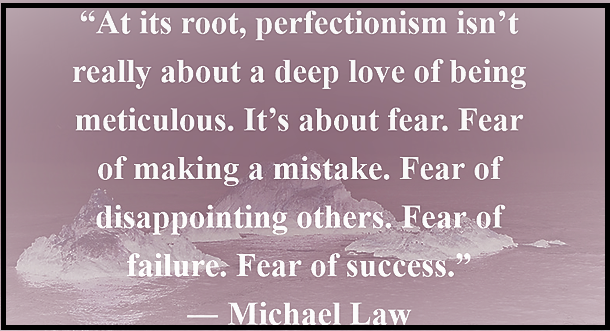Perfectionism in brief means doing the things in perfect manner (refusal to accept any standard short of perfection), that is doing the right things and doing the things right.
Will such ways of doing things at workplace provide satisfactory output or not, is to be understood?
In this blog the answer to this question is discussed. Perfectionism has both positive (pleasure seeking) and negative (stressful) aspects……SK Saxena TechConsults
General – About Perfectionism.
In my blog entry on working environment climate
(https://www.techpostsk.com/2021/06/emotional-intelligence-at-workplace.html) , i
t was mentioned that emotional Intelligence plays a major role in workplace and HR management. One of the words used there is perfectionism.
The dictionary meaning of the related word are as below:
Perfect – completely good; without faults or weaknesses
Perfection – the state of being perfect or without fault.
Perfectionism – refusal to accept any standard short of perfection.
Going through the above implications one should comprehend the significance of this word in administration of working environment and related administration to get effective yield.
An ideal machine asset is unique in relation to a human asset as regards to work yield. Human asset has shortcomings and issues, built in as a part of their character attributes.
Would perfectionists be able to do amazingly in their activities, need to explore?
Is perfectionism, as depicted above, fortunate, or unfortunate to get achievement?
Let us explore definition of perfectionism.
Perfectionism is often defined as the need to be or appear to be perfect, or even to believe that it is possible to achieve perfection. It is typically viewed as a positive trait rather than a flaw. People may use the term “healthy perfectionism” to describe or justify perfectionistic behaviour. ….Wikipedia
Perfectionism is a trait that makes life an endless report card on accomplishments. When healthy, it can be self-motivating and drive you to overcome adversity and achieve success. When unhealthy, it can be a track to unhappiness.
What makes extreme perfectionism so toxic is that while those in its grip desire success, they are most focused on avoiding failure, resulting in a negative orientation. They do not believe in unconditional love, expecting others’ affection and approval to be dependent on a flawless performance. ….
Psychology Today https://www.psychologytoday.com/us/basics/perfectionism
Understanding of Perfectionism

One may consider perfectionism as a positive characteristic inside, to get achievement, however, (as can be seen from the definitions) it is foolish and demotivating and blocks the shots at making progress.
A definitive mental and actual consequences for the person’s character may results in,
stress,
uneasiness,
despondency,
psychological wellness issues.
Indications of Perfectionism

Followers of perfectionism or with inbuilt signs of perfectionism, can be
gauged with following traits in their personality.
To have ridiculously exclusive requirements.
Setting unreasonable norm.
Expecting same perfectionism standard from others too.
Getting baffled habitually in their tasks.
Stay unsatisfied with their activities and approach, in any event, when the work is finished.
The persons who believe in perfection, have their different personality traits around, for their thought process and can be categorized notably as below but not limited to:
Affiliated with work environment.
May put hard standards for others to follow to accomplish perfectionism.
Trusts in doing the ideal things as it were.
Come what may, the target must be achieved.
Do the right things or do not do.
Gets in discouraged stage if everything is not working out positively, and if everything is great and you accomplish perfection, become inclined to act as an expert for the new assignments.
Accomplish work perfectionism even at the cost of extended resources.
Takes up assignments only, if sure of to complete them without any mistakes.
Hard to be content on others achievement.
Affiliated with Self-analysis.
These individuals put forward their objective, and work for its accomplishment. In any case, if not fruitful, condemn themselves and go under pressure, nervousness and put forth effort to avoid required procedures.
Make themself responsible for not getting the right things done.
Get unsettled for not getting the objective consummately.
Perfectionism is accomplished by , unusually involving oneself.
The endeavours are more towards the objective accomplishment and as such have faith in adjusting the blunder immediately/
Affiliated with communications / correspondences:
Proper communication is an art and science. The communication models and public speaking education are available. If there is fear of not performing with perfection, these models may not be used, thereby decreasing the efficacy of verbal and nonverbal communication.
Additionally, the verbal correspondence gets expanded to give guidance to getting perfectionism.
Involve in sending perfect communication and as such takes much time in drafting it.
Affiliated with physical appearances.
Physical appearances may create complexes as physical structures have attributes such as size, beaty, handsomeness. And to counter such complexes one tries to become perfect by spending time on personal grooming. The causative factor may be food habits (eating disorders causing emotional and health disturbances) and addiction to unwanted things, and even too much indulgence in managing physical appearances attributes.
Does not enter in play or conversation as he is not certain to accomplish perfectionism.
He has confidence in splendours and deal with his work so no one may discover shortcomings.
Affiliated with social angles.
At the point when one comes in association with the public, there comes prerequisite to dominate. A rivalry for perfectionism shows up among people which make them on pressure and strain, to accomplish compulsiveness.
The perfectionism issue is likewise seen in individuals already having high expectations and living standards.
Affiliate with environment.
After having good education and experiences these people set standards for their close environment and set standard for getting perfect environment.
Related to personal standards in profession:
The standards are set by the people for their workplace output. The standards are set considering the goal to be achieved and are considered good because there are less harmful effects . Such standards set for perfectionism may delay the time and cost schedule, But the perfection achieved motivates people for take up other works.
Kinds of Perfectionism

Normal perfectionists are more inclined to pursue perfection without compromising their self-esteem and derive pleasure from their efforts.
Neurotic perfectionists are prone to strive for unrealistic goals and feel dissatisfied when they cannot reach them.
People who are perfectionists typically believe that nothing they do is worthwhile unless it is perfect. Instead of being proud of their progress, learning, or hard work, they might constantly compare their work to the work of others.
Even when people with perfectionistic traits get their desired results, they may still be unsatisfied. They may feel that if they truly were perfect, they would not have had to work so hard to achieve their goals.
Drive Force Behind Perfectionism.

A few factors that help in perfectionism are:
A fear in mind that others may be dissatisfied with the output.
Sensations of weakness and deficiency.
Psychological wellness issues like nervousness or fanatical enthusiastic issue (OCD).
While a correlation between OCD and perfectionism has been found to exist, not all people with perfectionism have OCD, and not all people with OCD are perfectionists.
(Obsessions are persistent, unwanted thoughts about a certain topic. Compulsions are repetitive behaviours or mental acts which one feels compelled to perform. People diagnosed with obsessive compulsive disorder (OCD) often act out compulsions in response to their obsessions.
For example, a person may constantly worry their house will get robbed. To manage their anxiety, the person checks the locks on their doors a dozen times a night. This behaviour cannot realistically prevent a robbery or break-in, but the person feels severe distress if they do not follow through. )… OCD / Obsessive Compulsive Disorder (goodtherapy.org)
Keeping up with accomplished achievements in life may appear to be upsetting to a perfectionist.
At the point when youngsters are ceaselessly applauded for their achievements, may feel pressure in keeping up with such achievement later, and they may become perfectionist.
Going through all above review , you can comprehend perfectionism inside you. And can go for improved habits and behaviour, as perfectionism is avoidable using emotional intelligence at your workplace.



